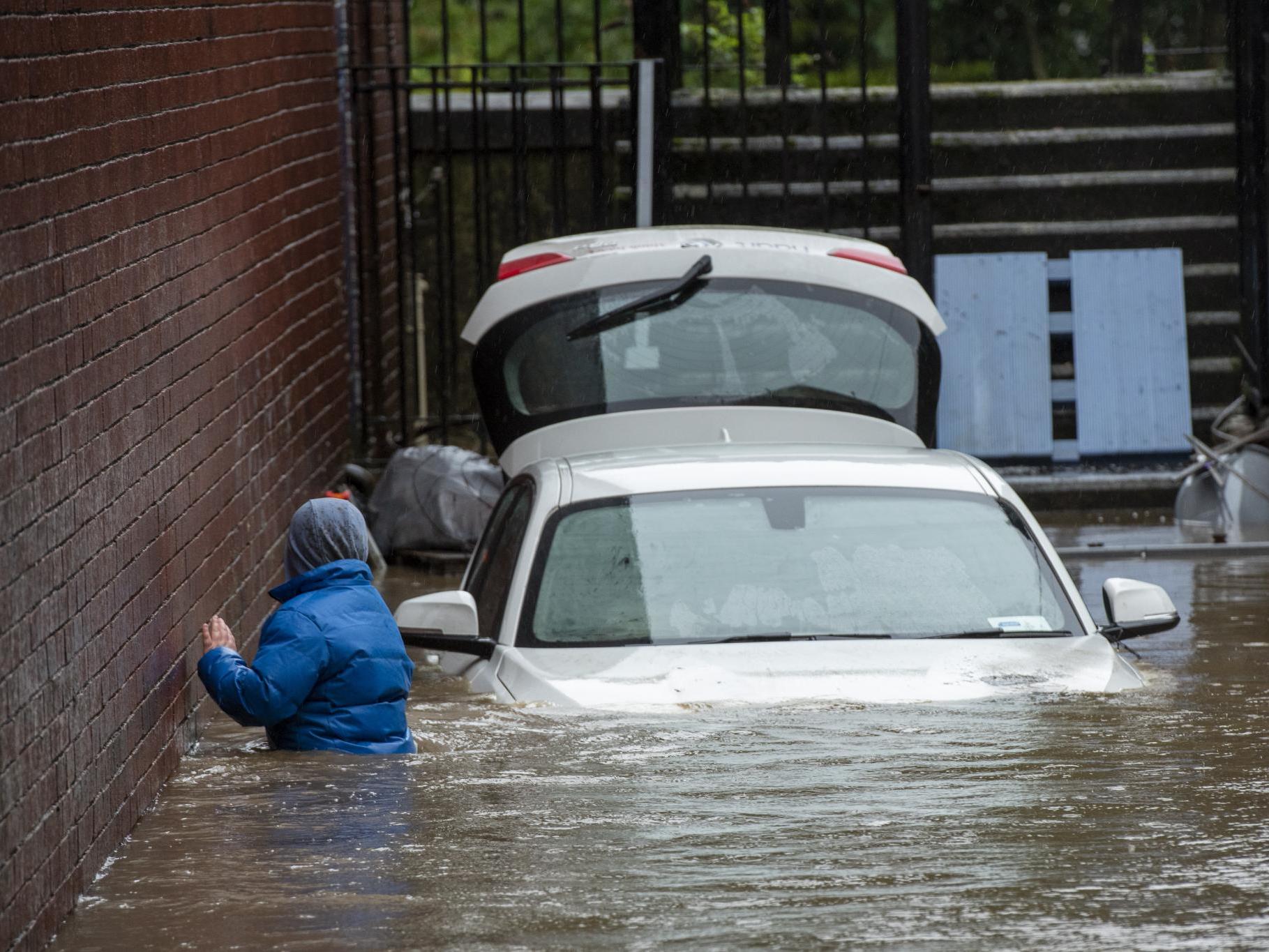The Boris Johnson-shaped hole in the wake of devastating flooding will come back to haunt the Tories
While the government should invest in preventative infrastructure, the speed and extent of the climate crisis could mean that holding off disasters like these may prove unaffordable

The shadow secretary of state for the environment, Luke Pollard, says that Boris Johnson’s refusal to visit areas hit by the flooding is a “disgrace”. So it is, and it betrays a certain detachment from the concerns of the communities where five people have died over the weekend, and hundreds were evacuated from their homes.
For people to have lost treasured possessions, and, on some cases, had their homes wrecked by the waters for the second or third time in a few years, the prime minister’s assurance that is monitoring developments from the safety and comfort of a country pile in Kent may be thin recompense.
If this is the “people’s government”, it certainly doesn’t act like one. It is, indeed, so aloof an attitude that it seems out of character for even this prime minister, who usually makes a token effort to turn up and look concerned, even when he is not. It is also odd, given the number of votes there are currently underwater. They may not rise to the surface when Mr Johnson next asks them to be “lent” to him at the next general election. Even allowing for the way he was heckled mercilessly when he visited in Yorkshire during the previous inundation last November, it is perplexing behaviour.
Still less comprehensible is Mr Johnson’s failure to call a Cobra meeting, even one to be chaired by the likes of, say, George Eustice, the new environment secretary. There is a huge job of work to be done in coordinating the efforts of all the public agencies involved in the effort, from local and devolved authorities to the Treasury to the Ministry of Defence, and it would do some good to have them sharing their intelligence and plans of action. It should by rights, have the force and authority of No 10 behind it, and the prime minister echoing Churchill with calls for “action this day”. Instead, the crisis finds Mr Johnson mumbling “manana” over his tea and crumpets at country residence Chevening.
Mr Johnson has not said much about the current wave of floods, but last November he ventured to suggest both that the crisis was “not a national emergency” (when it patently was, just as it is again now) and that it was going to get much worse “perhaps because of building, almost certainly because of climate change”. He went on: “You’ve got to face the reality that places like this are vulnerable to flooding – we’re going to see more of it.”
“Crisis, what crisis?” as a famous tabloid headline once ran.
Yet Mr Johnson does have a point about the future. While the government certainly should invest more in national anti-flooding infrastructure – where London has led the way – it is also true that the speed and extent of the climate crisis could mean that preventing more frequent biblical flooding in the future may prove unaffordable.As was witnessed in Australia, albeit in very different conditions, some natural disasters are so extreme (driven by global warming or not) that they are beyond the scope of humanity to mitigate, let alone prevent. Householders and businesses will be left with areas of the country that are semi-uninhabitable, where property becomes uninsurable (even with government backing) and where residents face some very difficult choices about where they want to live. The answer to that, of course, is to press ahead and meet the challenge of the climate emergency which is causing the flood emergencies.
It is, the scientists, tell us, not too late. Maybe it is something for Mr Johnson to think about as he lounges around in the lovely dry salons at Chevening and contemplates the COP26 summit in November. Perhaps he’ll turn up to that gig.
Join our commenting forum
Join thought-provoking conversations, follow other Independent readers and see their replies
Comments